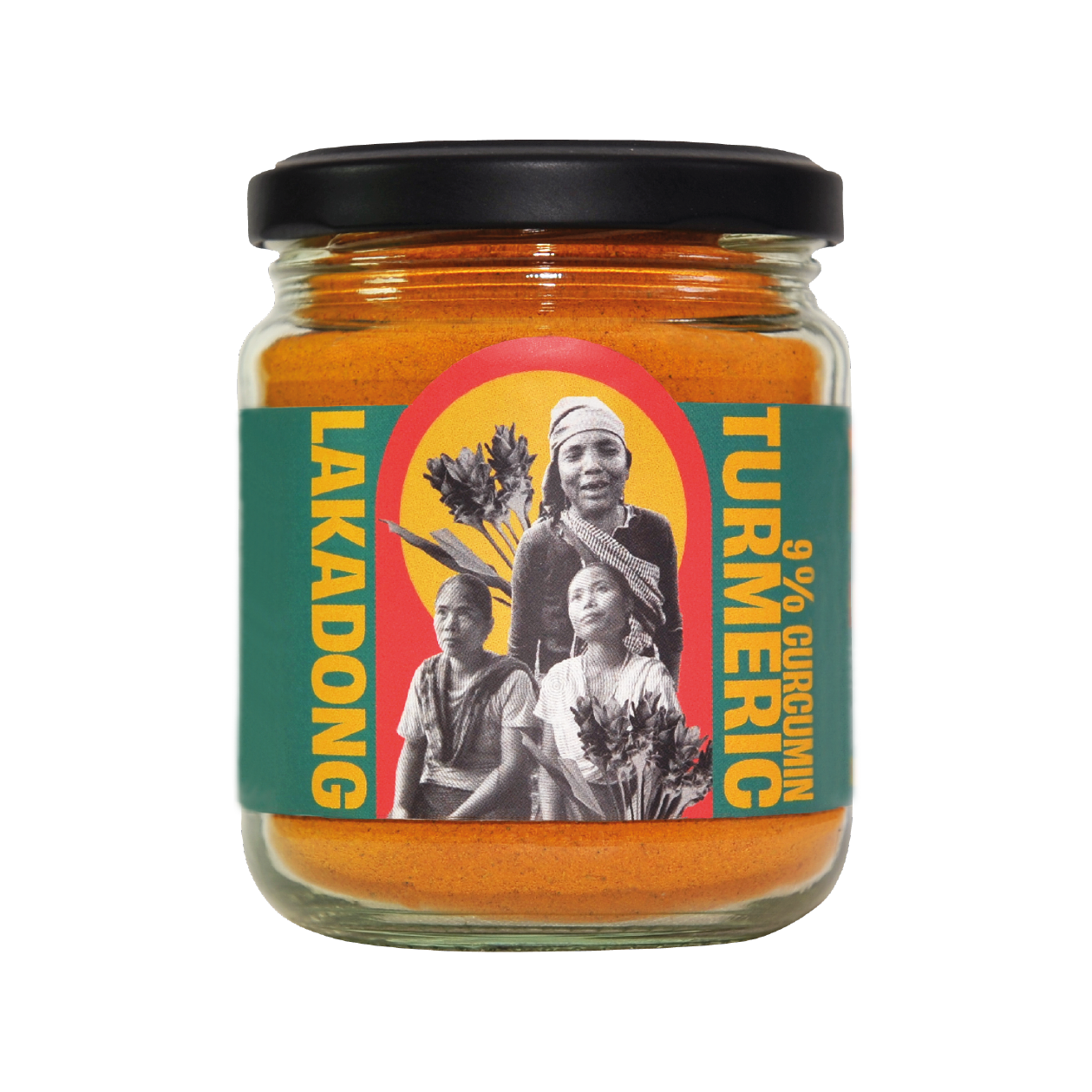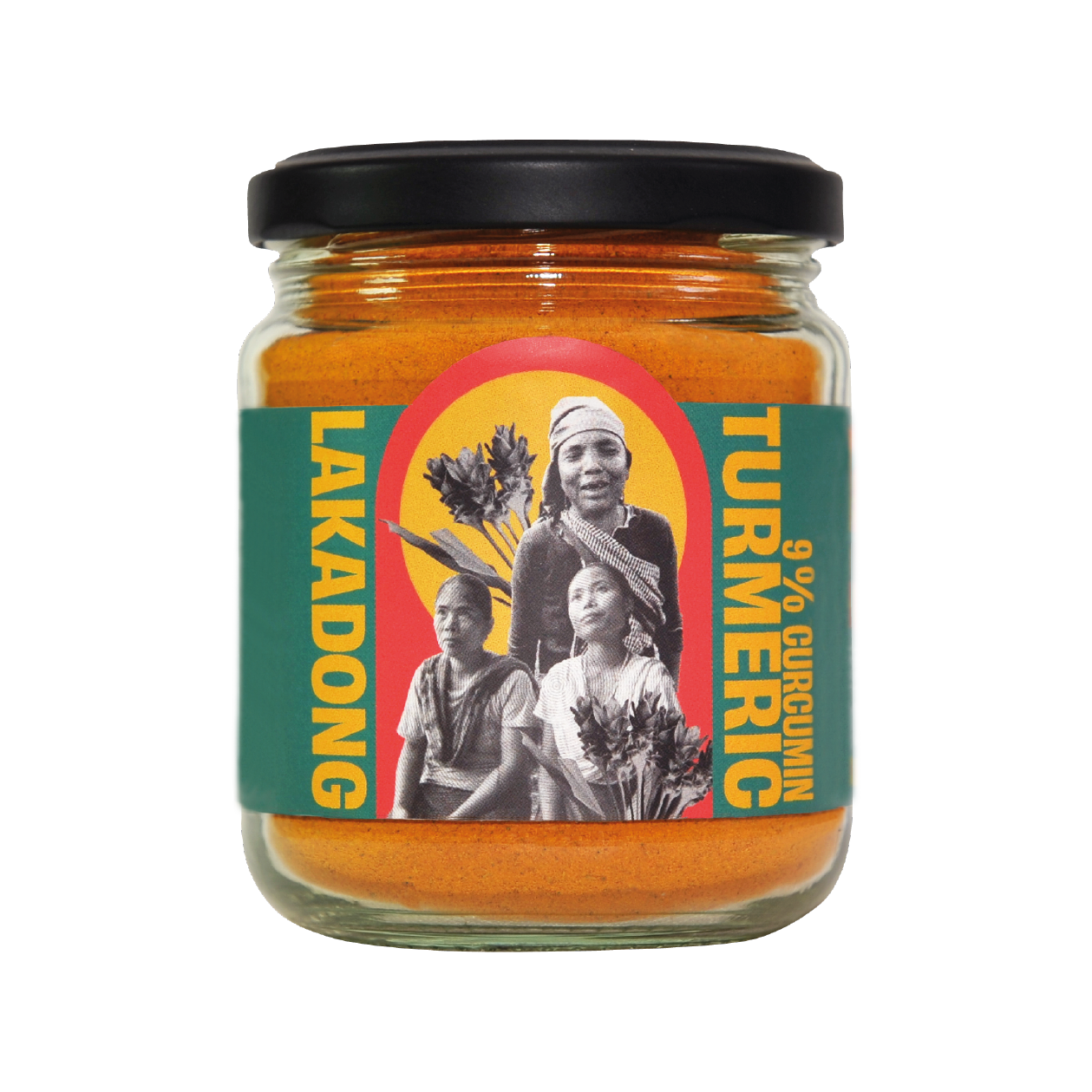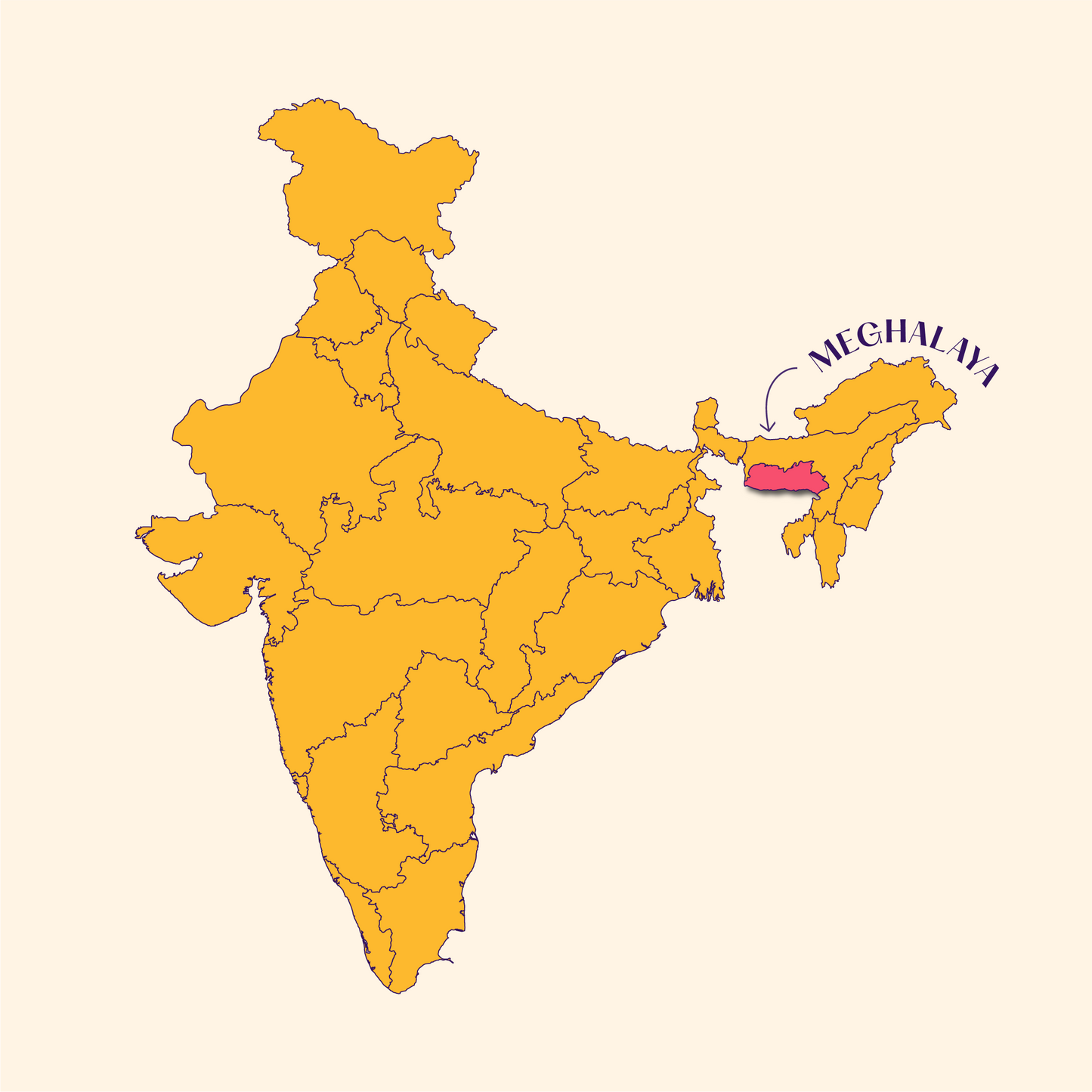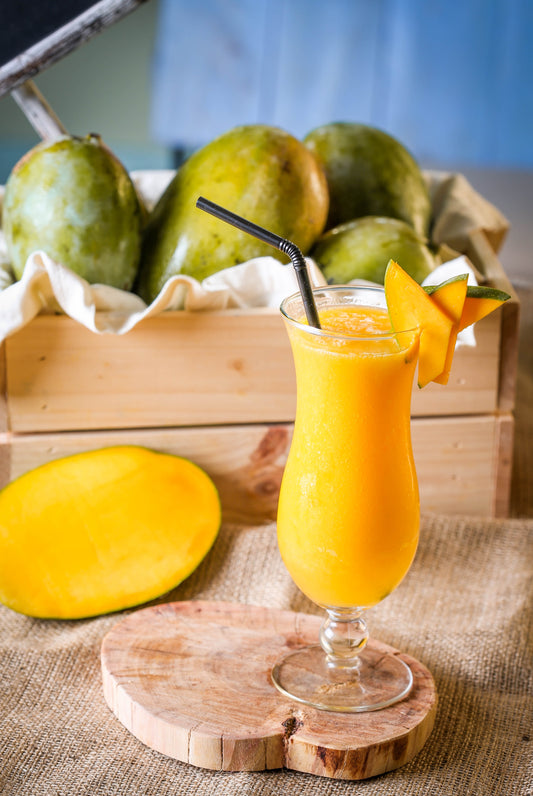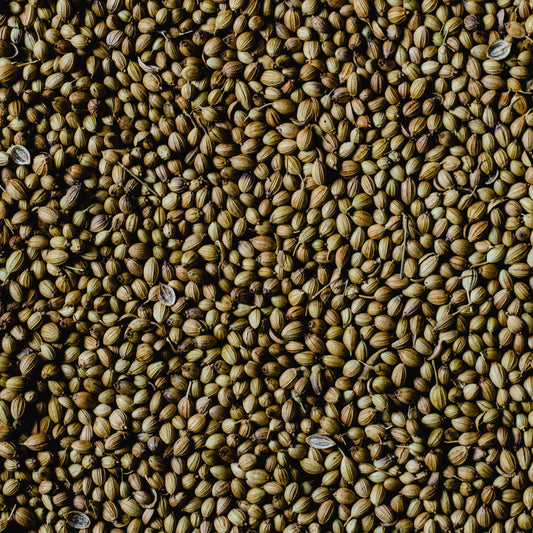Today, our lifestyle of stress and eating habits have been severely impacted by the intensive use of chemicals in foods and agriculture, resulting to even more human diseases. Researchers across the world have been finding natural ways to treat lifestyle-caused disorders by studying medicinal plants and its therapeutics.
Spices are an effective way to improve these lifestyle stresses. Not only do they play a flavour role in food, but they also double up as nutritional powerhouses providing your body with essential nutrients and immunity boosters. All spices have some sort of therapeutic benefit, this is due to their composition of essential oils, oleoresins and our personally most looked out for - bioactive compounds. Here we've rounded some our favourites which target a range of ailments and are easy and enjoyable to supplement into your everyday lifestyle (plus they aren't too hard to find either!)

1. TURMERIC - THE SUPER SPICE
Turmeric, botanically known as Curcuma Longa, is a rhizome (underground stem) grown and harvested for culinary and medicine. It’s mainly grown in India where different locations have different varieties, like Alleppey Turmeric of Kerala and the high curcumin - Lakadong Turmeric of Meghalaya. The rhizomes are dried then powdered and used in many of South Asian dishes. It is commonly referred to as Indian saffron, giving curries a bright, deep orange colour but it goes beyond colour and flavour.
Haldi ka doodh (turmeric milk) or 'turmeric latte' and 'golden milk' (as appropriated in the West, thanks to Gwyneth Paltrow and Pinterest-trends etc.) was actually quite interesting to see back in 2013. A childhood classic I squirmed at somehow become mainstream and loved, but it also opened up the conversation of how Ayurveda is so much more historically and emotionally, and the reasons why it was consumed by previous generations.
Turmeric milk is typically given to treat coughs, colds and boost energy levels and immunity. Traditional Indian medical systems also used turmeric for rheumatic disorders and gastrointestinal symptoms. Turmeric also goes beyond the kitchen! It has antiviral and antiseptic properties, and has been used for centuries to heal cuts and wounds. It can also be used as face mask to treat acne, blemishes and eczema.
Why is turmeric known as the most powerful? It contains anti inflammatory, anti-carcinogenic and antioxidant properties, thanks to its bioactive compound, curcumin.
What is curcumin?
Curcumin is one of the many bioactive compounds of Turmeric. It is one of the most studied and the most potent. Clinical trials have shown curcumin to help reduce anxiety and improve our mood, by enhancing a protein in our brain that keeps our brain cells healthy.
However, curcumin is a fat-soluble compound which means it clings onto fats and is poorly absorbed through water. To increase the bioavailability and for our gut to absorb the curcumin, it is key to consume turmeric with some sort of fat, i.e. in cooking, milk or smoothies. Consuming turmeric with a pinch of black pepper also does the trick. If you're taking curcumin supplements or turmeric tea, try and have it with a meal that includes some sort of healthy fats like avocado, nuts or olive oil.
💡Researchers have been looking into the use of curcumin in COVID-19 patients as a preventative and treatment!
How to use:
• Haldi ka doodh (turmeric milk): mix 1 teaspoon of turmeric into your choice of milk, add a pinch of black pepper (to help absorption). Best enjoyed hot in the evenings just before bed to aid sleep
• Curry: This is a no-brainer. like all spices, turmeric's compounds are enhanced when heated. Add a 1/2-teaspoon depending on how much you're making. But don't over do it as it will overpower your dish!
• Turmeric tea: mix a teaspoon of turmeric, half an inch of freshly grated ginger (or 1 teaspoon of ginger powder), 1/4 teaspoon of black pepper and the tiniest amount of ghee/coconut oil - (a fat substance to help with curcumin absorption). Optional: add 1/2 teaspoon honey only once your tea has cooled down

2. GINGER
Ginger creates strong and pungent flavour to dishes as it holds a number of chemical compounds which are altered when the root is cooked or dried, alternating its flavour too. Ginger has been used medicinally for over 2,500 years. Belonging to the Zingiberaceae family and the Zingiber, it is a powerful root containing compounds like gingerols, beta-carotene, salicylate, capsaicin, caffeic acid and curcumin. Like it's cousin turmeric, ginger has potent antioxidant and anti-inflammatory properties which supports:
- nausea/vomiting
- lowers incidences of inflammatory diseases
- aids digestion
- pain relief
- colds and sore throats
- potential to prevent cancer
- may help reduce blood pressure
The pungency of ginger is due to the presence of gingerols, particularly 6-gingerol, which is quite similar to the compound, capsaicin giving chillies its spiciness! Unlike some other spices, when heated or dried, ginger actually becomes more pungent than when fresh. This is because its compounds are transformed into shogaols and double in pungency.
How to use
• Ginger herbal tea: 1/2 inch of fresh ginger root or 1 teaspoon of ginger powder, a squeeze of lemon, pinch of Himalayan salt. Add honey once it has cooled down if you prefer a sweet taste.
• Ginger chai

3. BLACK PEPPER
The most commonly found in the kitchen! Black pepper inhibits a major compound called piperine giving its pungency and spicy sensation. It's essential oils including limonene and beta-caryophyllene is what may help protect our bodies from inflammation and cellular damage.
The versatile spice can help support:
- relieves nausea and headaches
- stimulates digestion
- may help fight cancer cells
Piperine it self as low solubility in water alone, so it is always best to eat black pepper with a meal as we normally do.
4. AJWAIN
This is probably one of my all-time favourite herbs just because of how quickly and effectively it works. Also known as carom seeds, Ajwain (Trachyspermum ammi) is a common household remedy and has been long used in Ayurveda for treating digestive issues, from constipation to excess gas. It's also used in tadkas where a handful of spices are fried in oil.
What makes ajwain so effective? It contains active compounds like carvacol and thymol an anti-fungal and an antispasmodic agent, commonly used in toothpastes and mouthwashes. The presence of thymol is also why it has a similar smell to thyme, but far more bitter and pungent in taste. Ajwain's essential oils also have antimicrobial properties which are effective at fighting pathogenic bacteria (1)
Benefits:
- relieves indigestion
- improves cholesterol levels
- can prevent excess coughing
- potential to lower blood pressure. ...
If you often experience stomach pains or digestion issues after eating, chew around a 1/4 of a teaspoon to prevent such pains. Though, be careful not to have too much in one go as it can be very spicy. Once chewed, I recommend drinking some water over it to mellow the spiciness.
How to use:
• Chew 1/4 teaspoon of raw ajwain after food
• Soak 1-1/2 teaspoon of raw ajwain in 350ml of water and drink when needed. Can also add to hot water and drink as a tea.
• Variyari (Āyurvedic post-meal digestion mix): On a low heat, roast equal amounts of ajwain seeds, cumin seeds and fennel seeds till its fragrance begins to open. Switch off the heat and let it cool completely. Transfer to a handy container and enjoy on its own after meals!
💡 I always carry a tiny container of ajwain in my bag for an on-the-go remedy in case my stomach feels achy after a meal (something I learnt from my mum!)

5. Fenugreek Seeds
Fenugreek (known as methi in Hindi), is actually a legume orginating from Greeze and belongs to the Fabaceae family. It mostly used as spice across different cuisines to enhance the flavour of foods and possesses high nutraceutical value. It contains five bioactive compounds; trigonelline, isoorientin, orientin, vitexin, and isovitexin.
Benefits:
- lowers blood sugar levels
- lowers LDL (bad cholesterol) whilst increasing HDL (good cholesterol) maybe due to its high fibre content
- helps increase milk supply for mothers who are breastfeeding. It is used in katlu an Indian sweet given to new mothers after their delivery.
- may boost testosterone
- lowers inflammation
- potential to reduce the risk of some neurological disorders
💡 If pregnant, please speak to a doctor before deciding to consume it for therapeutic reasons.
Fenugreek is also amazing for hair growth and nourishment. You can easily make it at home and incorporate into your haircare routine with our 2-ingredient rosemary hair rinse.
How to use:
• Fenugreek Tea - soak a teaspoon of fenugreek seeds in 350ml of hot water. Drink on an empty stomach to aid digestion.
As with everything, it's best to consume spices in moderation and not overdoing it. We'd love to hear about your favourite spice and why it is - feel free to comment below!
Reference:
(1) M.A. Hanif, H.N. Bhatti, M.S. Jamil, R.S. Anjum, A. Jamil, M.M. Khan. (2010). Antibacterial and antifungal activities of essential oils extracted from medicinal plants using CO2 supercritical fluid extraction technology. Asian journal of chemistry. 22(10): 7787.


